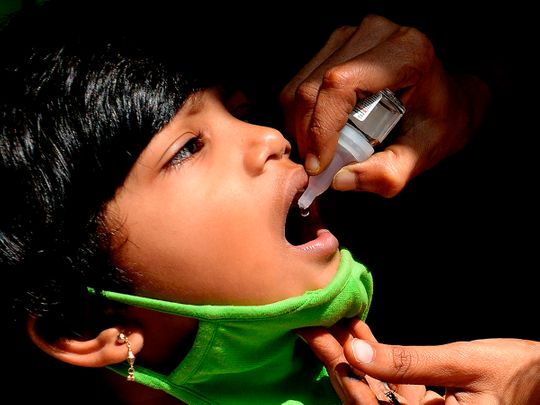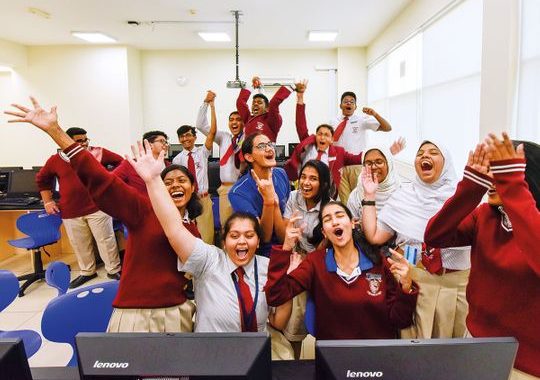Dubai schools urged to enhance polio vaccination coverage

Image Credit: AFP/file
Dubai: Schools in Dubai have been urged to enhance polio vaccination coverage in the wake of the reappearance of cases in multiple countries.
The International Polio Emergency Committee announced at its 32nd meeting on June 15 that the threat of the international spread of polio continues to constitute a Public Health Emergency of International Concern.
The World Health Organisation declared the UAE polio-free in 1992 and it is closely involved in efforts to eradicate polio globally.
The Dubai Health Authority (DHA) has now stepped up the polio vaccination drive with the support of the schools in the emirate as previously unvaccinated individuals have been diagnosed with polio in some other countries in recent times.
In a circular issued to schools recently, the authority advised all doctors and health care workers in schools to enhance polio vaccination coverage.
As there is no cure for polio, it can only be prevented. Polio vaccine, given in multiple doses over time can protect a child for life. Two types of vaccines are available: the oral polio vaccine (OPV) and the injectable inactivated polio vaccine (IPV).
What schools should do
In the circular seen by Gulf News, DHA said the prescribed vaccination regimen for polio in the UAE are four doses of the IPV and three doses of OPV.
The IPV doses are given at the age of 2, 4, 18 months and 5-6 years and OPV doses are given at the ages of 6, 18 months and 5-6 years.
DHA has asked school clinics to adhere to the following measures:
Ensure that students complete the polio vaccination regimen.
Ensure that newly registered students and those transferred from other institutions complete the polio vaccination as required.
Ensure that the student at age 5-6yrs have received the fourth dose of polio vaccine.
Ensure that the immunisation records of the students are up to date as per the country requirement.
Schools welcome move
Schools have welcomed the authority’s decision to enhance the vaccination drive.
Deepika Thapar Singh, CEO-Principal, Credence High School in Dubai told Gulf News: “We are proud that our leaders in the UAE have shown their unwavering commitment to health and wellness by making it a priority.”
She said the polio vaccine awareness drive organised by the government is a demonstration of that commitment.
“Polio can be a devastating disease but with early intervention, this can be prevented. We commend the government’s proactive approach because this vaccination drive is imperative to ensure that the population is protected against polio. As stakeholders, we also feel morally obligated to contribute to the best of our abilities. Our medical teams are working hard to maintain up-to-date immunisation data of our children in accordance with the DHA’s guidelines, enabling us to identify and advise parents about getting their children vaccinated,” Singh added.
How dangerous is polio?
Polio is a rapidly spreading viral disease caused by three types of Polio viruses (type 1, 2, 3) which affect the nervous system, causing paralysis, disability and death in rare cases. The disease is more common in children under five years of age and in areas of poor environmental sanitation.
The virus is transmitted from person to person through fecal-oral route. It spreads mostly through direct contact with stools of an infected individual and to a lesser extent, through ingestion of contaminated water or food. The Poliovirus enters the body through the mouth and multiplies inside the intestine
from where it can invade the nervous system and cause paralysis.
Symptoms include fever, fatigue, headache, vomiting, neck stiffness, and pain in the extremities.
One in 200 infections results in irreversible paralysis (usually of the legs). Of those who are paralysed, 5-10 per cent die when their breathing muscles get paralysed.
Most people infected with the polio virus do not show signs of illness, and never realise they have it, DHA pointed out. “These asymptomatic people carry the virus in their intestines and can “silently” transmit the infection to thousands of other people, before the first case of polio appears.”


